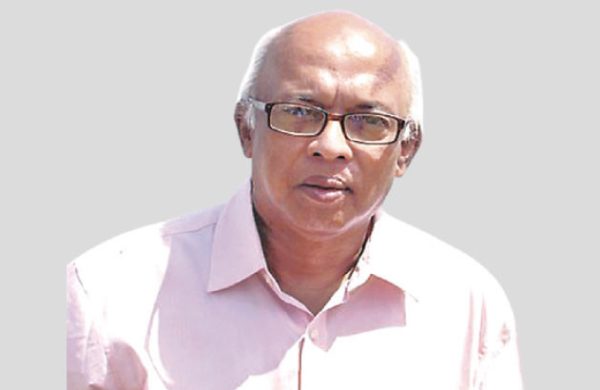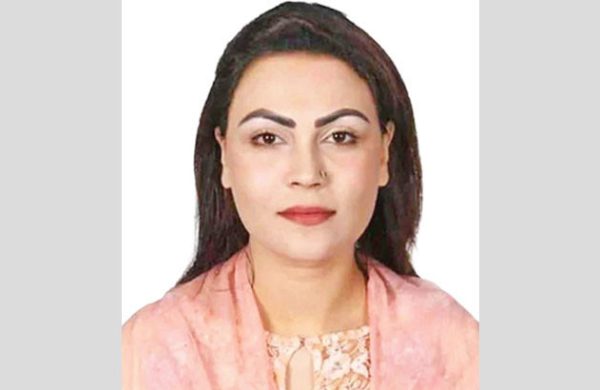Friendship or enmity?
- Update Time : Sunday, December 8, 2024

—A K Ziauddin Ahmed—
After August 5, when the then Prime Minister of Bangladesh, Sheikh Hasina, fled to India in the face of a mass uprising led by students, the Bangladesh-India relationship entered a new phase. India stopped issuing visas to Bangladesh citizens and suspended train services between the two countries. There was no government in Bangladesh for three days, from 5 to 7 August, until an interim government was formed on 8 August. However, a feared reign of vengeance against the fallen regime did not occur. Some scattered instances of violence against members and supporters of the ousted Awami League government took place in certain areas that prompted India to express concern. Notably, India’s concerns were primarily focused on those belonging to the Hindu community. The Indian government issued a formal statement, and Indian media raised a hue and cry about “mass atrocities against the Hindus”. In striking contrast, when thousands of students and professionals were killed or injured by Sheikh Hasina’s regime in Bangladesh during the July-August uprising, India neither expressed concern nor condemned the human rights violations.
Indian social media posts and some mainstream media broadcasts have continued to present distorted facts, exaggerated claims, and fake news, often fabricated, falsified, taken out of context, or generated by AI. Additionally, politicians and people in positions of power in India have engaged in hate speech and aggressive rhetoric. These narratives have gone viral, leading ordinary citizens to believe them and form negative attitudes towards Bangladesh. Such organised propaganda campaigns risk inciting hostility against Bangladeshis traveling to India for tourism or medical treatment. Instances of such hostility have already come to light, including an attack on the Bangladesh Deputy High Commission in Agartala, where properties were vandalised, and the Bangladesh flag was torn and burned.
Indian hostility heightened after the arrest of a former ISKCON leader in Bangladesh on sedition charges. A court denied his bail and sent him to jail. His followers blocked the prison van for over two hours, and when dispersed by police, they resorted to violence—pelting bricks, damaging shops and vehicles, and injuring police officers and pedestrians. At one point a Muslim lawyer was beaten to death. Such incidents could have caused violent repercussions but the interim government, along with conscious students and political parties successfully prevented them. Earlier, in October, the government ensured stringent security and protection for the Hindu community to peacefully observe their biggest annual festival Durga Puja at more than 32,000 ‘mandaps’ across the country. It was very challenging considering the prevailing law and order situation. However, there was no acknowledgment or appreciation from the Indian press or government.
When a country positions itself as the guardian and protector of a particular group within another country, it essentially creates divisions among the people of that nation, which may incite violence. It is also an interference in the internal affairs of that country which is against international law.
A country’s government may change, but the people of the country remain the same. Italy has changed its prime minister 49 times since 1943. The average tenure of a prime minister in Italy has been less than 20 months. Therefore, if a country’s government preferred to work with a particular prime minister in Italy and refused to adapt to new leadership, it would not be able to maintain stable relations with Italy.
Ignoring people and focusing only on those in power cannot be a rational policy. India knows very well about the atrocities and killings committed by the Awami League regime in the July-August uprising and their astounding level of corruption, money laundering, abduction and enforced disappearances. Therefore, it should not rationally think that destabilising Bangladesh will facilitate Sheikh Hasina’s return to power when the people of Bangladesh are still there.
What does the Indian government expect to achieve through its hostility towards Bangladesh?
According to the Ministry of Tourism and the Bureau of Immigration of India, Bangladesh was the second-largest source of tourism in the country with 12,55,960 Bangladeshis visiting in 2022. Most Bangladeshi tourists visited India for leisure travel and leisure spending was the highest contributor to the foreign tourism revenue for India. There were also many visitors for medical treatment who contributed to the income of Indian doctors and hospitals. In the trade sector, Indian exports to Bangladesh in 2022 were $13.8 billion whereas Bangladesh’s exports to India in the same year were only $2 billion (Source: Observatory of Economic Complexity).
Two neighbouring countries can choose to be either friendly or hostile, and that choice is made by their governments. We trust that the Indian government will take steps to stop fostering enmity among the peace-loving people of both countries. We believe they will understand and accept the reality and will not sacrifice the friendship of a nation for an individual who, in all probability, has no political future. Maintaining peace and friendship with the people of Bangladesh will benefit India more than it benefits Bangladesh.
_________________________
The writer is a former corporate professional and academic



















